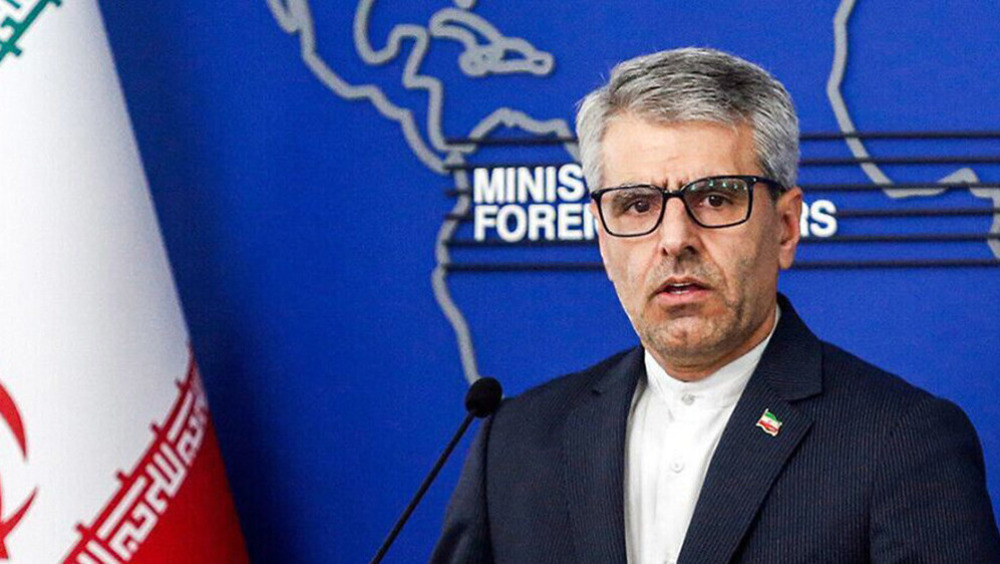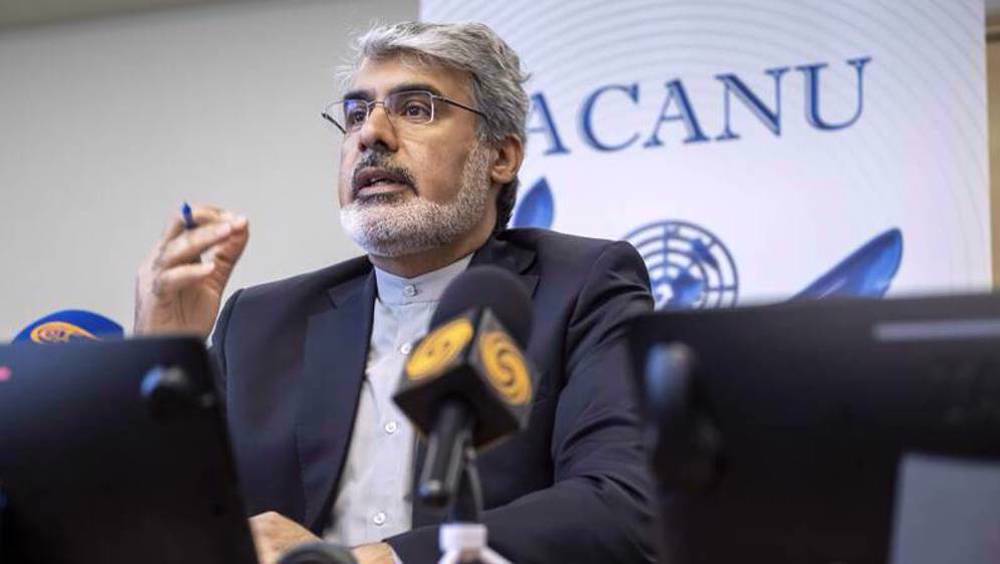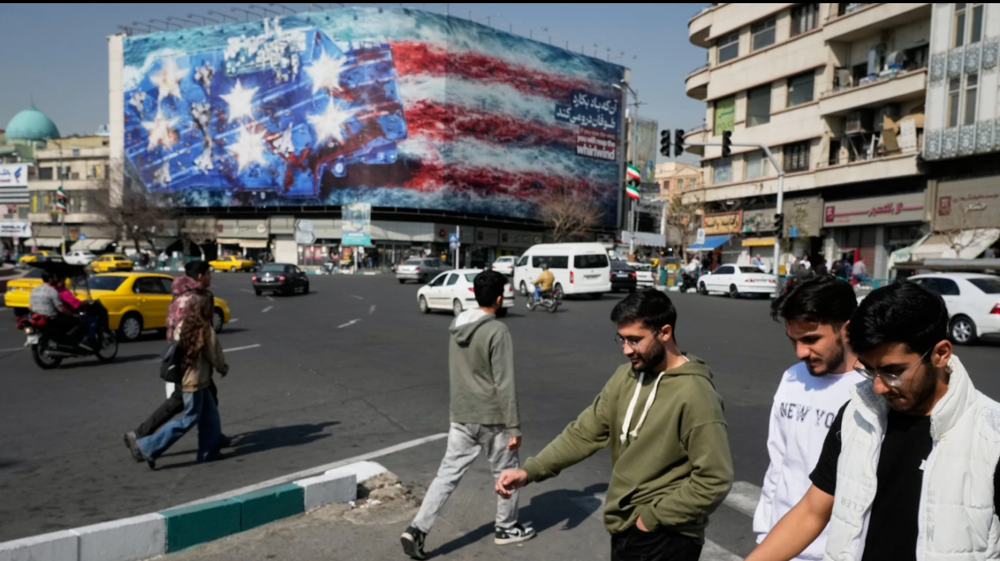US must stop economic terror, act like a normal state: Iran envoy to UK
Iran’s ambassador to the UK has urged the US to stop using “economic terrorism” to force Tehran into negotiations, saying Washington needs to act “normal” and avoid interfering in the Islamic Republic’s ties with other states.
In an interview with CNN on Monday, Hamid Baeidinejad said that dialog should be held with the voluntary determination of all sides, and that no country can be forced into talks.
“What we want from the US is to be a normal country and not to interfere with the Iranian economic relationship with the other countries. They are threatening all countries in the region and beyond not to enter into economic and trade agreement [with Iran] and this is a kind of economic terrorism,” he said.
“The US should not be pressurizing Iran into negotiations, the US should decide to be aside from Iran’s relationship and other countries,” he added.
Last year, US President Donald Trump unilaterally pulled his country out of a 2015 multilateral nuclear deal and unleashed the “toughest ever” sanctions against Tehran, notably targeting its energy sector.
Washington has also been building up its military presence in the Middle East under the pretext of alleged Iranian threats.
Since its withdrawal from the Joint Comprehensive Plan of Action (JCPOA), Washington has been trying to coerce other countries into joining its anti-Iran pressure campaign.
In parallel with its hostile polices, the US has also been claiming that it is open to negotiations with Tehran. The latest such offer came from hawkish National Security Advisor John Bolton, who said the United States is willing to hold talks with Iran to ease tensions but also is set for action against what he claimed to be Iranian military provocations.
Iran, however, says Washington’s offer is not honest, and that it will not negotiate under pressure.
Elsewhere in his interview, Baeidinejad warned that Iran and the US were getting closer to a confrontation, which would make Washington regret.
“Unfortunately, we are heading towards a confrontation, which is very serious for everybody in the region,” he said.
The envoy further warned of a scenario, which is being worked on to drag the United States into a confrontation, adding that Washington should not to underestimate Iran’s determination to defend itself.
“If they wrongly enter into a conflict, they would be very sorry about that, because we are fully prepared” said the senior diplomat, stressing, “We would not be submitting to the will of United States.”
He also dismissed a claim by the United States that Iran attacked two oil tankers in the Sea of Oman and questioned the American assessment and intelligence on Iran’s alleged role in the incident.
“The question is that what are these assessment based on. You can have your assessment. I have my assessments. People on the streets can have their own assessments. Assessment is reliable when it is based on evidence, on the facts. We have not been facing with any kind of evidences or facts till now,” he said.
The Iranian envoy further described as “distorted” footage released by the US as supposed evidence of Iran’s alleged involvement in the attacks.
“We should see who have the interest to disrupt security in the region. You know that there are countries in the region and beyond the region who have invested heavily billions of billions of dollars to trap the United States in a military conflict with Iran,” he said.
One Japanese-owned and one Norwegian-owned tanker were struck by explosions near the strategic Strait of Hormuz on Thursday morning. Tokyo said both vessels were carrying “Japanese-related” cargo.
The attacks came as Japanese PM Shinzo Abe was meeting with Leader of the Islamic Revolution Ayatollah Seyyed Ali Khamenei in Tehran.
Shortly after the incident, US Secretary of State Mike Pompeo blamed Iran, without offering any evidence. Trump also claimed that the incident had Iran “written all over it.”
The cause of the attack is not yet known, but the Japanese shipping company has said two “flying objects” attacked its tanker in the Oman Sea, contradicting the US account that mines had hit the vessels.
To support its claims, the Pentagon on Monday released images of what it said were Iranian forces removing unexploded mines from a vessel after the footage it had released as “evidence” failed to convince the global community over Iranian involvement in the incident.
Palestinian factions denounce US for offering ‘consular services’ inside West Bank settlement
Iran, Omani foreign ministers meet ahead of third round of indirect nuclear talks with US
VIDEO | UN commemorates Mother Language Day with celebrations
VIDEO | Pakistan, Afghan Taliban trade accusations after border clash
VIDEO | Venezuela races against time to rebuild homes bombed by US
Ex-IAEA chief warns US of ‘horrific’ costs of war on Iran
India’s Modi visits occupied territories to deepen ties with Israel despite Gaza genocide
Araghchi says ‘fair and balanced’ deal within reach ahead of Geneva talks
















 This makes it easy to access the Press TV website
This makes it easy to access the Press TV website